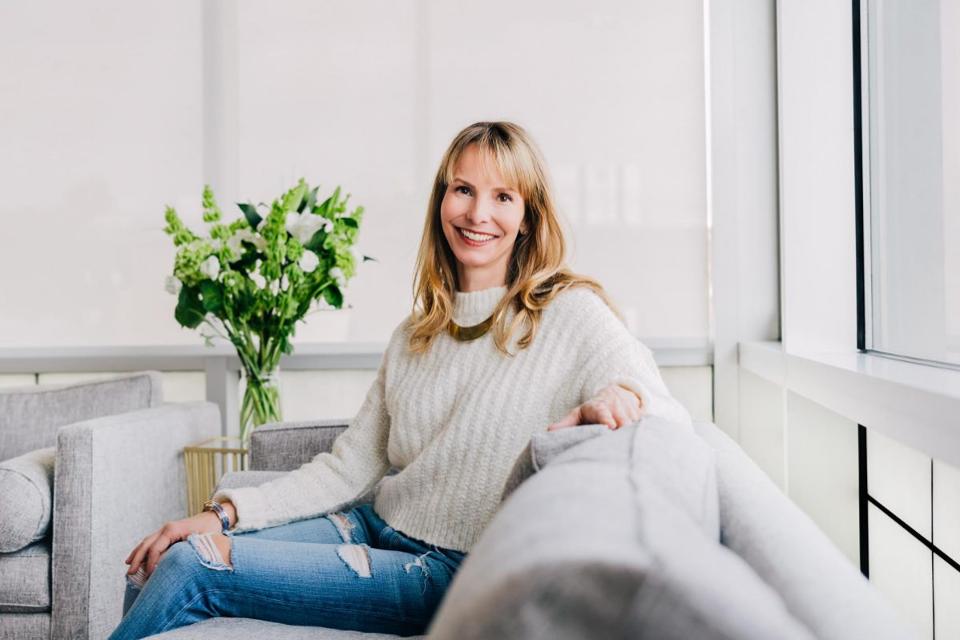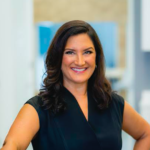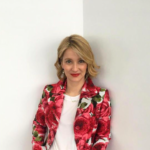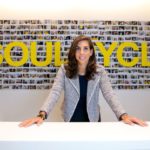The inspiration for starting a company can happen at unlikely times. Heidi Zak, cofounder and co-CEO of ThirdLove, had an “aha” moment in a dressing room when she was trying on a bra to wear for a holiday party that evening. She left with an uncomfortable bra and the motivation to start ThirdLove, an e-commerce company dedicated to making comfortable bras — and now loungewear and underwear — based on sizing and feedback from millions of women. Zak quit her corporate job at Google to start ThirdLove with her husband, cofounder and co-CEO, David Spector in 2013.

What inspired you to start ThirdLove? What was your career path?
A few years ago, I was headed to a holiday party at Google and I had absolutely zero bras that fit me. At the last minute, I dragged myself to a store (and into an uncomfortable dressing room), leaving with a few options that weren’t quite right out of necessity.
I knew there had to be a better way to bra shop, and there also had to be a way to build a better bra. That’s how the idea for ThirdLove came to me: standing in a dressing room, tired of settling for uncomfortable bras that didn’t make me feel—or look—my best.
After college, I did investment banking and consulting, which were both pretty traditional roles. Then I went to business school, and after graduating from Massachusettes Institute of Technology’s Sloan School of Management, I was a director at Aeropostale, launching and running their international business. From there I moved to the West Coast to work at Google and took a job as a marketing executive.
What has been the biggest challenge and, on the flip side, the biggest reward of starting ThirdLove?
The biggest challenge in starting a business and being a leader is learning that you can’t do everything at once. Over the last few years, I’ve had to really focus on hiring smart people who I trust and taking a step back from the details that I used to be so involved in. It’s a constant balance between making sure I’m involved enough but focused on motivating, inspiring and guiding my team.
On the flip side, the biggest reward was having just a vision and building something out of nothing. ThirdLove started as an idea in a dressing room and has evolved into something that’s impacting millions of women’s lives. Getting those women into a better-fitting bra that makes them feel—and look—their best is well worth the hard work.
ThirdLove is one of the fastest growing businesses in America. What advice do you have for maintaining culture as a company scales?
Building a great company culture starts in the hiring process—and it’s the hardest thing I do as a CEO. In the early days, we made hiring mistakes, hired people too quickly just to fill a role, and ended up with team members who ultimately didn’t work out.
Since then, we’ve learned to take our time with hiring, encourage our employees to refer their friends (everyone knows someone great) and give our team the freedom they need to never settle. Culture comes from hiring the right people, who line up with your company values and never compromising those standards, even if you’re in a time crunch to fill a role.
You’ve raised $13,600,000 venture funding to-date. What advice do you have for other women raising funding for female-focused businesses?
Being a female founder provides you with an incredible opportunity to bring a unique view and set of skills to the table. In my experience, investors are looking for leaders who are passionate and want to build something that can impact a large number of people. My advice is to never see your gender as a woman as a barrier, but rather as an opportunity.
You are cofounder and co-CEO with your husband, David Spector. How do you make running a business with a significant other work?
When you’re looking for a cofounder or co-CEO, I would say the most important thing is to find someone who you trust. That’s why so many cofounders are related or married—they trust each other implicitly, which is why [Spector] and I took the plunge to go into business together.
It’s all about balance. We live together, parent together and run a company together—so we spend quite a bit of time together. But we find time for each of us to workout, go to dinners or networking events and enjoy time with other family and friends.
You use machine learning algorithms to make data-driven decisions. Please tell me more about how you use data to make business decisions!
Data drives just about everything we do here at ThirdLove. Because we have a Fit Finder Quiz on our site that helps a woman find her bra size, we have over 75 million data points about breast shapes, bra size and the most common fit issues women experience. Those data points are constantly making us smarter and improve both our product designs, the personalized site experience and the recommendations we make to women for size and styles.
Also, because we’re an e-commerce company, we get constant feedback from our customers via social media, email and directly to our Fit Specialists on the phone. Hearing from our customers and understanding their needs has helped inform so many new product launches: from our Nursing Bra Collection (one of our most-asked-for styles!) and the skin tone shades we chose in our New Nakeds Collection.
ThirdLove launched the #BreakTheMold initiative in 2017. How did you decide to create the initiative?
Our #BreakTheMold campaign (which launched in early 2017 and recently came to a close) was about carving one’s own path, saying no to ill-fitting expectations and embracing the beautiful details that make each woman unique.
As part of this campaign, we interviewed so many strong, beautiful women on our blog, ranging from tech CEOs to some of our oldest customers and more. Seeing their stories come to life—and learning how they #BreakTheMold—has been so impactful!
What’s the biggest lesson you learned at work and how did you learn it?
The biggest lesson I’ve ever learned when it comes to work is to trust your gut and not necessarily listen to other people’s opinions of what you should do. When I initially told my family that I was going to leave Google to start my own company, they thought I was crazy to leave such a stable job at a great company, but I knew in my gut that it was the right time to take the plunge. Listen to that inner voice that’s guiding you—most of the time, it turns out to be right!
What is one thing that you wish you had known when you were starting out your career?
I wish I would have known the importance of saying “yes” to networking events, even if it’s just a random dinner or happy hour. You never know who you’ll meet, and it’s always worth getting out there, meeting new people and learning from others and what they’re working on.
What is the best advice you’ve ever received?
The best business advice I’ve ever received is when you’re starting out — you should hone in on one thing and do that one thing really, really well before you expand. We spent over a year designing our core collection —including a T-Shirt Bra and Full Coverage Bra — and taking insights from our Fit Finder quiz to make them even better. It was only once we really mastered those first styles — which truly took years — that we moved on to fashion styles, lounge and more.
What is your business advice for other young professional women?
Get very comfortable with being uncomfortable. If you’re going to be your own boss—or potentially start your own company one day—you need to get used to learning things you don’t know, taking risks, and not knowing exactly what the next day will bring. Being your own boss isn’t easy, and yes, you will work long hours, but if you follow your passion and love what you do, it won’t seem like a job.
Image courtesy of Heidi Zak.
































